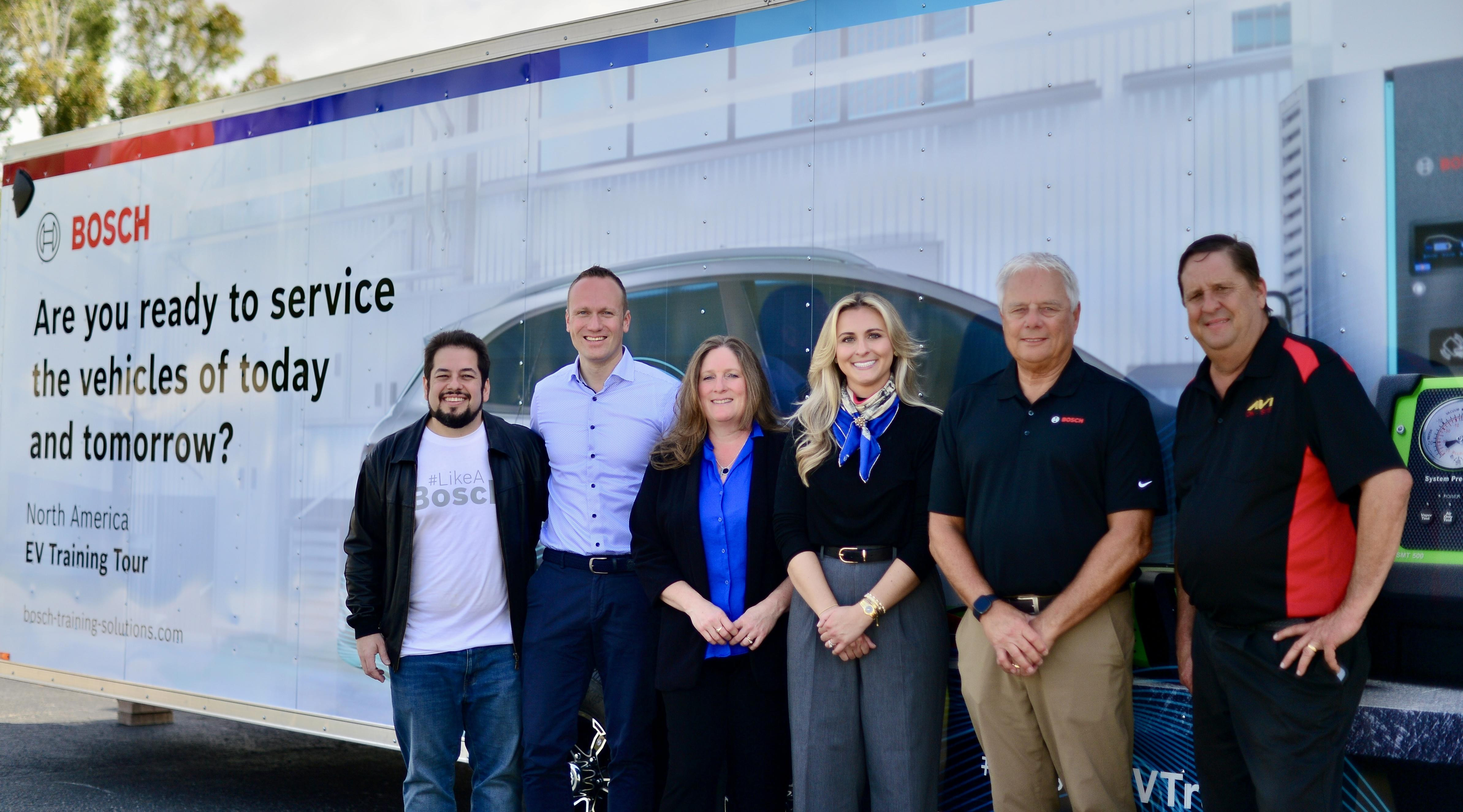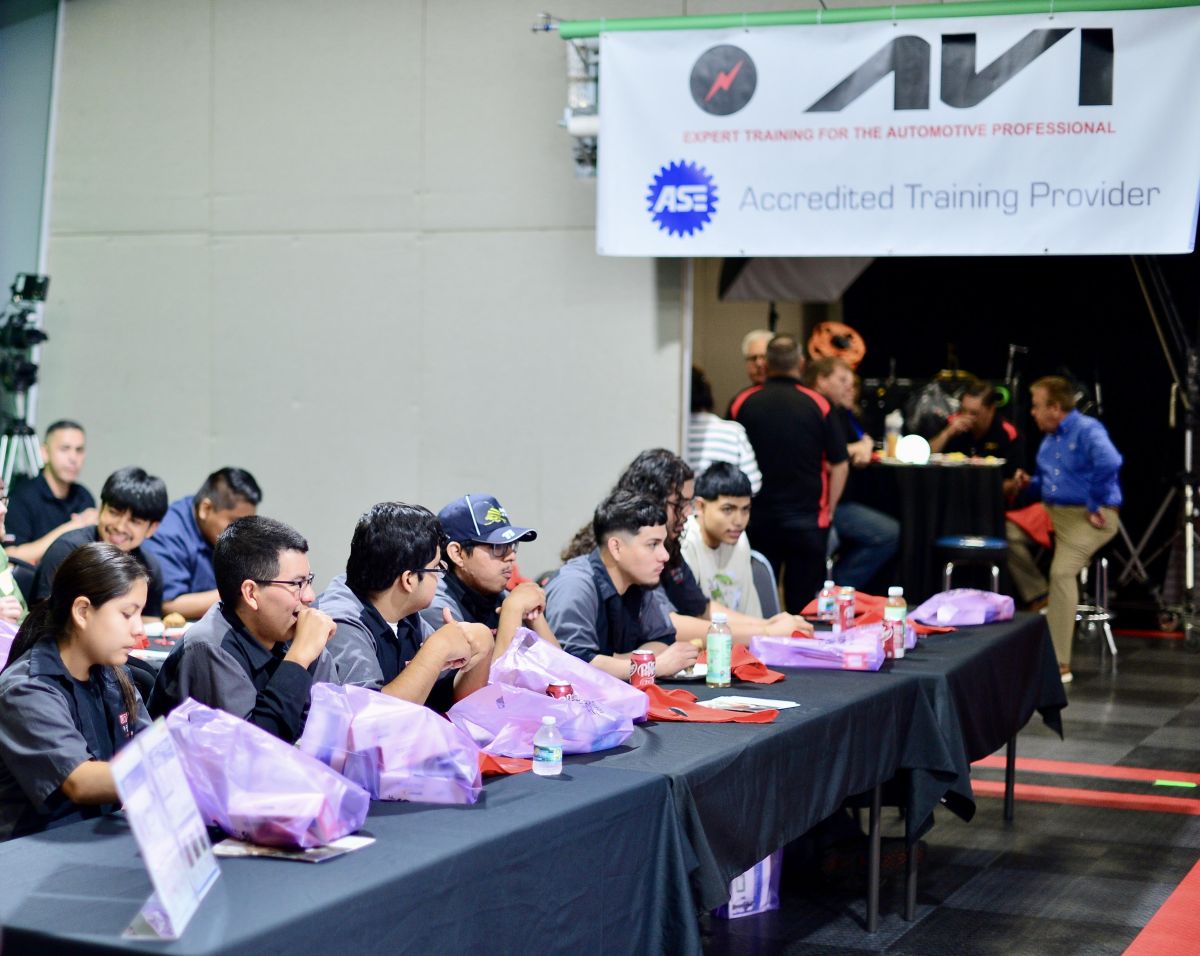Bosch’s Mobility Aftermarket division, along with its supplier, AVI, is bringing the Bosch EV Training Tour to up to 20 cities around the U.S. this year, with plans to expand both the reach and depth of the mobile training events in coming years.
“The main purpose is that we really want to help technicians in the new world of mobility,” said Daniel Angelo, director of technical services at Bosch. “We have a huge [EV] market already. The early bird gets the worm.”
The tour began in March with the first of three classes for Bosch employees to validate the content before taking the show on the road.
The first single-day, eight-hour class for technicians is scheduled for July 9 in Houston, TX. Bosch has 19 more events scheduled across the country between July and January 2025. Each will have room for 20 attendees. The cost is currently $650 per attendee. See the full schedule and register at aviondemand.com/shop/service-centers/bosch-ev-training-tour.
Angelo said the single-day course, led by a Bosch-certified AVI professional trainer, will teach the basics to technicians with any level of familiarity with EVs. In addition to learning the fundamentals of an EV, attendees will learn about legislation and U.S. standards, then work hands-on with a Toyota Prius hybrid car and an EV training aid cart. After completing the course, techs will be able to perform regular maintenance and troubleshooting.
 Pictured, left to right, are Daniel Angelo, director of technical services and support at Bosch Mobility Aftermarket NA; Andreas Haeberle, vice president of global technical services and support at Bosch Mobility Aftermarket; Kathleen Malone, AVI vice president; Brittany Kearns, project manager of technical services and support at Bosch Mobility Aftermarket NA; Mike Tuttle, training coordinator at Bosch Mobility Aftermarket NA; and Paul Louwers, AVI CEO.
Pictured, left to right, are Daniel Angelo, director of technical services and support at Bosch Mobility Aftermarket NA; Andreas Haeberle, vice president of global technical services and support at Bosch Mobility Aftermarket; Kathleen Malone, AVI vice president; Brittany Kearns, project manager of technical services and support at Bosch Mobility Aftermarket NA; Mike Tuttle, training coordinator at Bosch Mobility Aftermarket NA; and Paul Louwers, AVI CEO.
Next year, Bosch plans to offer a more intensive three-day course, after which techs will be qualified to perform more complex tasks, like opening battery packs.
Tom Rayk, director of training at AVI, said the training tour will prepare independent repair shops to service EV models as many are aging well past the warranty.
“Without firsthand experience and training, many technicians will be unable to provide these services safely and successfully, and could potentially lose business,” Rayk said. “Our technical aids, combined with the Bosch EV repair curriculum, will arm technicians and shop owners with the real-world experience they will need to prepare for the electric vehicle transition.”
Angelo said Bosch wants to schedule the tour stops so no technician has to drive more than 150 miles for the training.
“The concept is that shops don’t have to send their technicians to California, Florida or Michigan,” he said.
The tour stops are being selected based on three factors: the rate of EV adoption in the area, local shops that have requested such training, and the number of shops in the area participating in the Bosch Module Program, an independent repair shop network. There are about 9,000 nationwide.
In addition to professional technicians, Bosch wants to include automotive and collision repair students, and is working with tech schools to get their programs involved.
Angelo said about 25 students, all under 20 years of age, attended the class held in March in Florida.
“None grabbed their phone once in about two and a half hours,” he said. “They are really paying attention. That was a good test.”
Bosch hopes the training tour helps address the technician shortage by exposing not only young people at the start of their careers to opportunities in new technology, but also more experienced working technicians possibly looking to make a change.
In addition to expanding to more cities in the next few years, Bosch plans to add training courses for more advancing technologies, like autonomous vehicles, connected vehicles, ADAS and diagnostics.
Learn more about the Bosch EV Training Tour at aviondemand.com/shop/service-centers/bosch-ev-training-tour.














Abby Andrews